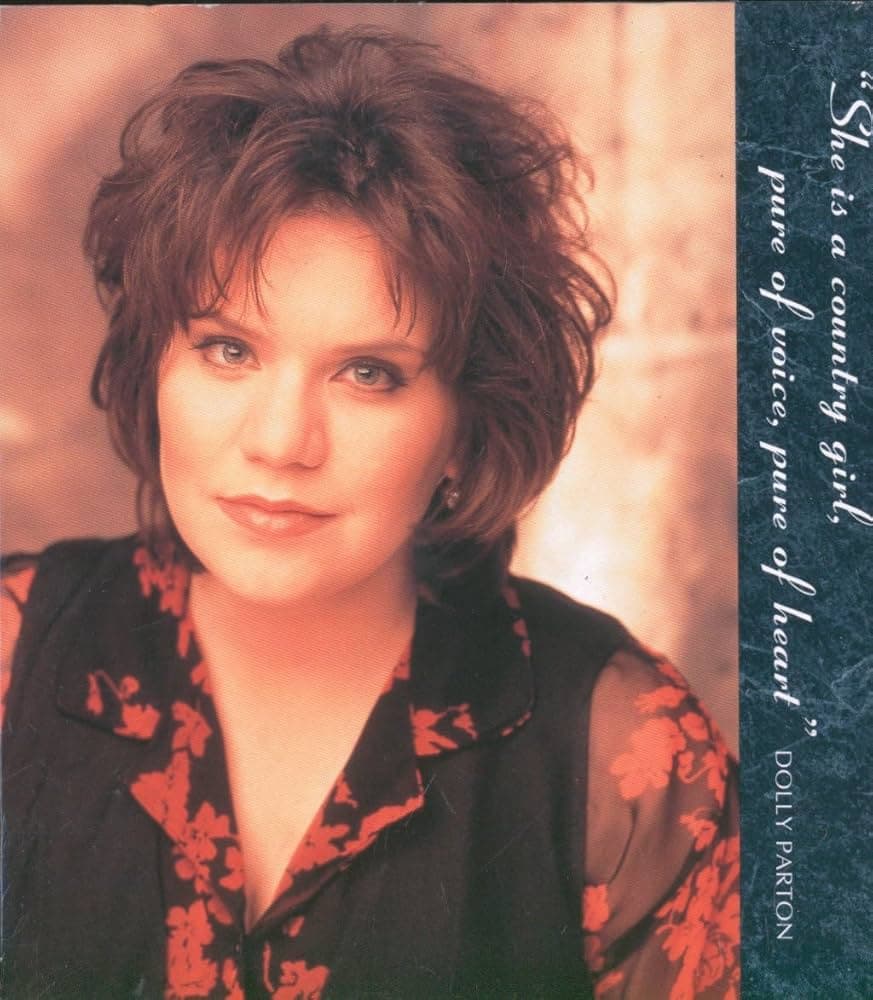
The Lingering Hope of Reconnecting with a Lost Love
Let’s venture into a soundscape where bluegrass traditions intertwine with contemporary grace, creating music that is both deeply rooted and breathtakingly fresh. In this unique space, the voice of Alison Krauss stands as a beacon of purity and emotional clarity. Her ability to infuse every note with a crystalline beauty and profound feeling has made her one of the most respected and beloved artists across multiple genres. Today, we’re revisiting a song that, while a cover, she made entirely her own, transforming a pop classic into a tender, aching ballad of rediscovered love: “Baby, Now That I’ve Found You.”
“Baby, Now That I’ve Found You” was originally a smash hit for The Foundations in 1967, a vibrant piece of pop-soul. However, Alison Krauss & Union Station released their iconic bluegrass-infused version in 1995, featuring it on their album “Now That I’ve Found You: A Collection.” This compilation album was a commercial triumph for Krauss, consolidating many of her best works and introducing her exquisite artistry to an even wider audience. The album itself peaked at number 13 on the Billboard 200, showcasing her crossover appeal. As a single, “Baby, Now That I’ve Found You” was a significant success for Krauss, reaching number 11 on the Billboard Hot Country Singles & Tracks chart and even crossing over to the adult contemporary charts, a testament to its broad appeal. It also earned Alison Krauss a Grammy Award for Best Female Country Vocal Performance, solidifying her status as a true vocal phenomenon. Its widespread success underscored her ability to take a familiar song and infuse it with such fresh emotion that it felt entirely new.
The story behind Alison Krauss’s rendition of “Baby, Now That I’ve Found You” speaks to her incredible interpretive genius. While the original version by The Foundations was a joyful, upbeat declaration of finding love, Krauss and her band, Union Station, stripped away the pop exuberance and reimagined it as a slow, yearning ballad. This transformation wasn’t merely a change in tempo; it was a complete shift in emotional perspective. Instead of the immediate, ecstatic joy, Krauss’s version conveys a sense of fragile hope, a plea, and a recognition of the value of a connection that might have been lost or previously overlooked. It suggests a more mature understanding of love, one that has perhaps endured challenges or distance, and now seeks to mend or rekindle what was. The arrangement, characterized by Union Station’s impeccable bluegrass instrumentation – the mournful fiddle, the resonant dobro, the steady banjo – provides a rich, melancholic backdrop that perfectly complements Krauss’s ethereal vocals. It’s a testament to the power of artistic reinterpretation, demonstrating how a song’s meaning can deepen and evolve in the hands of a different artist.
The meaning of “Baby, Now That I’ve Found You” in Alison Krauss’s interpretation shifts from simple euphoria to a poignant reflection on finding, or perhaps re-finding, something profoundly precious. It speaks to the recognition of someone’s true worth after a period of absence or a previous failure to fully appreciate them. The lyrics, “Baby, now that I’ve found you / I won’t let you go,” become less a possessive statement and more a heartfelt promise, born from a newfound understanding of what was almost lost. It’s about realizing the depth of one’s feelings and the preciousness of a connection, vowing to cherish it and hold onto it tightly this time around. For older listeners, this song resonates with a profound emotional truth – the wisdom gained from life’s experiences, the understanding of how easily good things can slip away, and the enduring hope for second chances, or for truly recognizing and holding onto what matters most. It’s a song about valuing profound connections and the quiet, determined joy of rediscovering what truly fills the heart.
Listening to “Baby, Now That I’ve Found You” by Alison Krauss & Union Station is like wrapping yourself in a warm, comforting embrace. Her voice, almost impossibly clear and sweet, delivers every line with a tenderness that is both heartbreaking and hopeful. The exquisite musicianship of Union Station provides a nuanced tapestry of sound, allowing the song to breathe and truly convey its deep emotional current. It stands as a magnificent example of how a familiar melody, when placed in the hands of truly exceptional artists, can be completely transformed, revealing new layers of meaning and resonance that linger in the heart long after the final note fades. It’s a timeless testament to the enduring power of love and the quiet strength of the human spirit’s longing for connection.